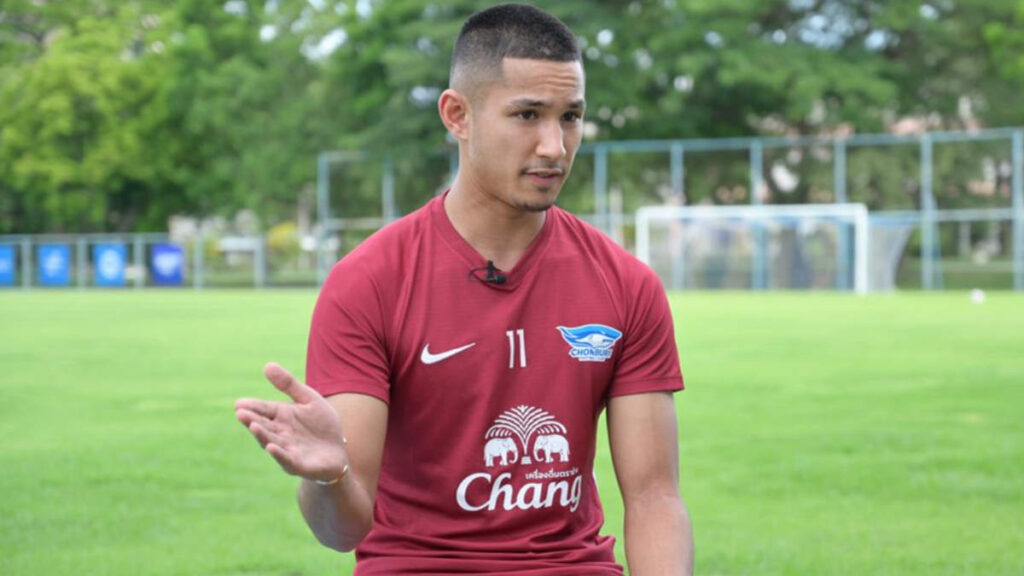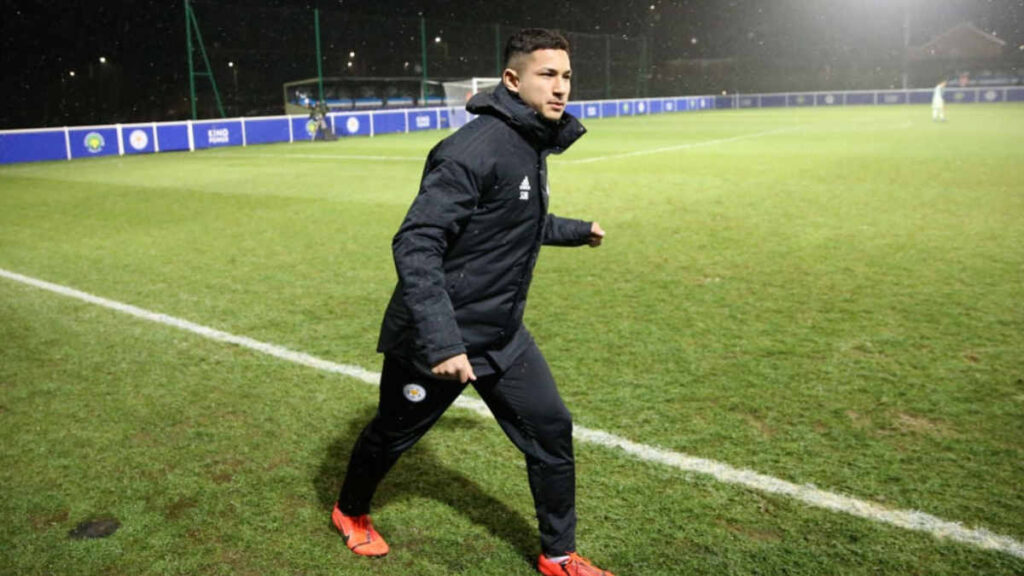When most people hear the name Bolkiah, their minds turn to oil-rich royalty, lavish palaces, and unimaginable wealth — not the muddy pitches of English football academies or the sidelines of Portuguese club games. But Faiq Bolkiah, nephew to the Sultan of Brunei and heir to one of the most opulent dynasties on Earth, chose a path few would expect: professional soccer.
While most billionaire heirs are content to inherit empires, Faiq trained alongside teenagers clawing for their first professional contract — at clubs like Southampton and Leicester City — often with little fanfare and even less playing time. Why would someone with generational wealth push through such a grueling and uncertain career? The answer lies not just in numbers, but in character, in the tension between privilege and passion.
In 2025, Faiq Bolkiah’s net worth remains the subject of fascination, but his story extends far beyond financial figures. It’s about proving something to himself — and perhaps to the world — that being born into greatness doesn’t mean you can’t still chase it.
2025 Snapshot — How Much Is Faiq Bolkiah Worth Now?
As of 2025, estimates of Faiq Bolkiah’s net worth range from $20 billion, according to Financial Express. A staggering figure that places him miles ahead of even football’s most elite earners. But here’s the nuance: the vast majority of that wealth doesn’t stem from transfer fees or endorsement deals. It originates from one of the world’s most opulent dynasties — the Bruneian royal family.
Faiq is the son of Prince Jefri Bolkiah, the brother of Sultan Hassanal Bolkiah, whose fortune has long been tied to Brunei’s vast oil and gas reserves. While some outlets lump Faiq’s presumed inheritance directly into his net worth, others attempt to isolate his holdings from the family estate, which includes private jets, luxury hotels, a fleet of over 2,000 cars, and palatial real estate across continents.
So what part of this fortune can truly be attributed to Faiq himself? Independent earnings from his football career are modest by comparison. Although exact figures are difficult to confirm, estimates suggest he has earned between $300,000 and $500,000 in salaries and signing bonuses during his stints with Leicester City, Marítimo in Portugal, and Chonburi FC in Thailand. Endorsements and public appearances add to the mix, but not substantially.
In essence, less than 1% of his reported wealth comes from football — the rest is inherited or family-controlled. This makes Faiq a statistical outlier: the richest footballer in the world, not by boot but by birthright.
From Palaces to Pitches — A Life Less Ordinary
Faiq Bolkiah was born in Los Angeles in 1998 — not in a gilded palace, but in the quiet luxury of Beverly Hills. The son of Prince Jefri Bolkiah, he spent his early years moving between worlds: the opulence of Brunei’s royal circles and the polished suburban rhythm of American life. As a dual citizen of Brunei and the United States, he had access to everything — wealth, education, and comfort. But somewhere along the line, he chose the grind.
By age 10, Faiq was already obsessed with football. Not the kind played with helmets and pads, but the global game. He trained with a quiet intensity that surprised even those close to him. One of his former youth coaches at AFC Newbury in England once recalled, “He never acted like he was royalty. If anything, he trained harder — like he had something to prove.”
At age 11, Faiq enrolled at Bradfield College, a prestigious UK boarding school where early mornings meant frost on the pitch and muddy boots before breakfast. The scene couldn’t have been further from Brunei’s marble-floored mansions. Yet, Faiq embraced the austerity. He signed with Southampton’s youth academy, then later Chelsea and Leicester City — climbing through some of England’s most competitive football systems, all while carrying the invisible weight of a royal surname.
There’s an unconfirmed story — part lore, part legend — that a teammate once asked why he was slumming it in the academy instead of enjoying life on a yacht. Faiq’s answer? “Because I love football. This is where I feel real.”
That sentiment — whether romanticized or real — captures the essence of a young man determined to earn something for himself in a world that had already given him everything. Faiq’s journey wasn’t about escaping privilege, but redefining it.

Career Highlights — Did Football Pay or Just Play?
Faiq Bolkiah’s football journey reads more like a supporting subplot than a star-studded saga. His resume includes names like Southampton, Chelsea, and Leicester City — clubs with world-class reputations. But dig deeper, and it becomes clear: while he trained among future Premier League stars, his name rarely made the team sheet on matchday.
At Leicester City, where he signed a three-year contract in 2016, Faiq featured primarily in the club’s U23 development squad. No goals, no first-team debut, and minimal media attention — aside from the fascination with his family fortune. Coaches praised his discipline and professionalism, but also noted he lacked the edge to break into a hyper-competitive senior squad. His playing time was limited not by attitude, but perhaps by sheer talent gap at the elite level.
In 2020, he signed with Marítimo, a Portuguese Primeira Liga side. Hopes were high for a fresh start in a slightly less intense environment. But again, opportunities proved scarce: just one appearance for the B team in Portugal’s third tier. No league goals, no major moments — just a quiet exit in 2021.
His move to Chonburi FC in Thailand brought more visibility, with actual senior team minutes and flashes of promise. Yet even there, he wasn’t a standout — more a novelty player with serious work ethic than a game-changer.
Was his career fueled by skill or status? Perhaps both. Faiq was good enough to earn a spot in elite academies, but not quite good enough to light up the scoreboard. The irony is hard to ignore: the richest footballer in the world, yet one of the least decorated on the pitch.
Still, his journey is more than a punchline. Faiq Bolkiah chased something most billionaires don’t: a chance to prove himself where money doesn’t matter — on the field, under pressure, with nothing guaranteed.
More Than a Prince — Faiq’s Brand, Endorsements & Business Plays
For someone whose wealth could fund a dozen startups and still leave room for a palace renovation or two, Faiq Bolkiah’s brand remains curiously understated. Unlike many athletes — even those far less wealthy or famous — Faiq hasn’t aggressively courted the spotlight. His social media presence, primarily on Instagram, is polished but sparse: a mix of training clips, occasional travel snapshots, and moments of quiet reflection. No flashy influencer campaigns, no obvious partnerships with designer labels or car brands — at least not publicly.
That’s not to say he isn’t cultivating a brand. If anything, his approach feels intentional: low-key luxury with a disciplined athlete’s tone. It’s a persona that straddles two worlds — royal wealth and working-class grit — and he seems to walk that line carefully. His followers don’t see yachts and watches; they see warm-ups, pitch drills, and locker-room camaraderie. Whether that’s authentic restraint or smart image management is up for interpretation.
As of 2025, Faiq hasn’t launched a personal fashion line, tech venture, or philanthropic foundation with his name stamped on it — at least, not publicly documented. And yet, his very existence sparks global curiosity. He’s a walking contradiction: the anti-celebrity celebrity, where mystique may be the brand itself.
If there’s a long play here, it may be legacy over leverage. While others in his position monetize fame fast, Faiq seems to be investing in something slower — perhaps credibility, or just peace.
In a media landscape obsessed with constant visibility, his restraint might be the most calculated move of all.
Royal Wealth vs. Football Income — What’s Driving the Net Worth?
To understand Faiq Bolkiah’s wealth is to separate two distinct financial currents: one trickling from modest football contracts, and the other surging from a royal lineage tied to Brunei’s oil-fueled riches.
His football income — spread across contracts with Leicester City, Marítimo, and Chonburi FC — is estimated to total less than $500,000 over his entire playing career. Add in minor endorsements or appearance fees, and the total might inch slightly higher, but we’re still talking small numbers by professional athlete standards.
By contrast, the Bolkiah dynasty controls tens of billions, with assets ranging from oil revenues and luxury hotels to art collections and rare cars. Much of this wealth flows through state-managed holdings and family trusts, blurring the lines between personal fortune and national assets. Faiq, as the son of Prince Jefri — once dubbed the “Playboy Prince” for his extravagant spending — is almost certainly the beneficiary of a sizable allocation.
But how much of it is his, in the actionable sense? That remains opaque. Royal wealth, especially in Brunei, often functions more like stewardship than personal liquidity. Faiq likely has access without full autonomy — a prince with privilege, but also protocol.
The real question isn’t just what he’s worth, but what part of that worth is truly his to command — and whether that distinction matters to someone who’s spent years trying to earn recognition in the most democratic arena there is: the football pitch.
Net Worth in Context — How Faiq Stacks Up Against Other Footballing Elites
In the footballing world, net worth usually follows performance, trophies, transfers, and brand deals. But Faiq Bolkiah flips that logic on its head.
Let’s look at the numbers. Faiq’s estimated 2025 net worth? $20 billion. Compare that to some of his generational peers:
- Mason Mount (Chelsea/Manchester United): $20 million
- João Félix (Barcelona/Atletico Madrid): $25 million
- Jadon Sancho (Manchester United): $25 million
- Erling Haaland (Manchester City): $40 million
These are players with Champions League goals, international caps, and multimillion-dollar endorsement deals. Yet Faiq’s net worth eclipses theirs by a factor of thousands. And unlike them, he’s never scored a top-flight goal, never signed a marquee deal with Nike or Adidas, and never featured in a major tournament.
His market value as a player has never exceeded six figures, and yet he’s technically wealthier than Messi and Ronaldo combined.
This dissonance underscores a fascinating truth about modern sport: talent doesn’t always equal wealth, and wealth doesn’t guarantee greatness. Faiq Bolkiah is an outlier — not just for his inheritance, but for navigating a career in a world where money usually chases the game, not the other way around.
In a sport obsessed with value, he remains a paradox: a billionaire among millionaires, chasing legitimacy instead of legacy.

What Faiq Bolkiah’s Journey Says About Wealth, Identity, and Passion
I’ll admit, when I first heard of Faiq Bolkiah, I assumed the headlines exaggerated — “The Richest Footballer in the World.” Surely, I thought, this was just a novelty title attached to someone dabbling in sport for fun. But the more I read, the more I found myself wondering: what kind of person chooses struggle when comfort is guaranteed?
What strikes me most about Faiq’s path isn’t the contrast between palaces and pitch time — it’s the quiet, consistent choice to pursue something that doesn’t need to be pursued. He doesn’t need the game. He doesn’t need the paycheck. He’s not playing for escape, fame, or even fortune. He’s playing because, by all appearances, he loves the sport.
There’s something oddly grounding about that. In a world where so much is transactional — especially in professional football — here’s someone who walks into the system already having “everything,” and still wants to earn something of his own.
Faiq’s story complicates our easy narratives about privilege. It doesn’t excuse it or dismiss it — but it forces us to ask whether passion can still have value when it’s not tied to survival.
And maybe that’s the most unexpected part of his journey: it’s not about needing to succeed — it’s about wanting to matter.
Future Projections — Where Could His Fortune Go Next?
Looking ahead, Faiq Bolkiah stands at an unusual crossroads: not of financial necessity, but of personal direction. At 27, he’s still young by football standards, especially in leagues where experience is valued over star power. A continued career in Southeast Asia or a return to European lower divisions remains possible — especially if he’s playing for love of the game rather than market value.
But football may not be his only play. Faiq’s reserved public image and international background position him well for global philanthropy, particularly in youth sports or education. A foundation that bridges Brunei’s wealth with football access in underserved communities wouldn’t just be noble — it would be a natural extension of his story.
There’s also the business path. As heirs from royal or ultra-high-net-worth families often do — think of Prince Mateen of Brunei or even athletes like Gerard Piqué — he could pivot into private investments, real estate, or cultural ventures. His name alone carries brand equity, should he ever choose to monetize it more publicly.
And, of course, there’s always the question of royal duties. As the Bolkiah dynasty continues into the next generation, Faiq may be called to represent more than just himself — shifting from the pitch to palace, from personal ambition to legacy stewardship.
A Prince, a Player, a Paradox
Faiq Bolkiah’s story defies easy categorization. He’s a prince who chose to sweat it out on training grounds instead of basking in inherited luxury. A footballer whose net worth dwarfs that of global icons — yet whose name rarely appears on the scoresheet. His path raises more questions than it answers: is this the tale of a man chasing passion, or one quietly resisting the script written for him?
In a world obsessed with outcomes, Faiq reminds us that identity isn’t always about what we achieve, but what we choose to pursue — even when we don’t have to. Maybe he’ll never lift a major trophy. Maybe his legacy won’t be found in goals, but in intention.
Because sometimes, the most remarkable thing about a life isn’t the fortune it holds — but the one thing it keeps chasing, against all odds.
Mohit is a finance and entertainment writer specializing in celebrity wealth, brand strategy, and media empires. As Co-Founder of TheNetWorths.com, he brings over a decade of experience analyzing public income streams, endorsement deals, and the evolving creator economy.

















1 thought on “Faiq Bolkiah Net Worth 2025: How the Richest Footballer Built a $20 Billion Royal Fortune”